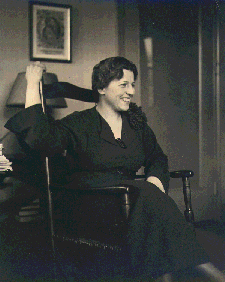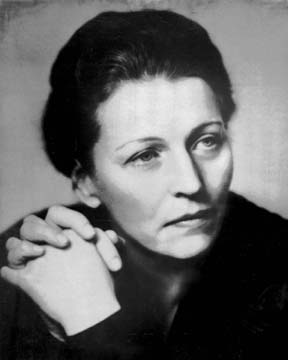The theme of Peony is the deterioration of Judaism in China. Pearl Buck uses a counter religion/philosophy to help express this deterioration. Confucianism is incorporated to show the different beliefs and traditions that Jews faced because of being a minority in the Far East. The beliefs of Confucianism, such as the subservience of a woman to her husband and a respectful paternal/filial relationship in the family, are not displayed in the Jewish culture (Berling). In this novel, the Jewish wife,
 Madame Ezra, is dominating, controlling, and ill mannered. She tries
to run the lives of her husband, Ezra, and her son, David. The paternal/filial
relationship is not respected because Madame Ezra insists on dictating
her son’s love life. Pearl S. Buck uses this clash between Confucianism
and Judaism to accentuate the deterioration of Judaism as the theme of
the novel.
Madame Ezra, is dominating, controlling, and ill mannered. She tries
to run the lives of her husband, Ezra, and her son, David. The paternal/filial
relationship is not respected because Madame Ezra insists on dictating
her son’s love life. Pearl S. Buck uses this clash between Confucianism
and Judaism to accentuate the deterioration of Judaism as the theme of
the novel.
Buck’s use of character identity and interaction also represents her knowledge of Confucianism and the conflict between that and Judaism. Wang Ma, the bondmaid for Ezra, is a strict believer in Confucianism. On the other hand, Madame Ezra is a devout Jewish woman. These two women live in close contact with each other, and this allows for the presentation of Jewish and Confucian beliefs at the same time. The tenets of the two women come into collision when Madame Ezra is coercing David into marrying a Jewish girl named Leah. When Madame Ezra becomes irritated with her husband, because he will not give into her demands, Wang Ma steps in to give her opinion. “‘Ah, Lady,’ she murmured. ‘Let men have their way! What does it matter to women? To sleep--to eat--to enjoy our own lives--that is best” (Buck 26). These words come from Wang Ma’s Confucian background. They end up enraging Madame Ezra because they are not what her Jewish heritage has taught her. The association of Confucianism to Wang Ma and Judaism to Madame Ezra shows how Pearl Buck uses character
Irony also plays an important role in Buck’s novel Peony. In the book, irony is used to emphasize that Judaism cannot escape the influence of Confucianism. The most pertinent example of this is when David goes to the Jewish temple to read the hallowed tablets. The first few lines of the tablets read, “Abraham, the patriarch who founded the religion of Israel, was the nineteenth generation from P’anku Adam” (Buck 144). Even in the sacred Jewish tablets with the name Adam is the Chinese name P’anku. P’anku is the Chinese word for first man and here coincides with the Jewish first man Adam. The finishing lines of the tablet are extremely affected by Confucianism. “Worship is to honor Heaven, and righteousness is to follow the ancestors. But the human mind had always existed before worship and righteousness” (Buck 147). The final quote contains the most potent influence of Confucian thought. It is ironic that in the Holy Scriptures of the Jewish religion appears the epitome of Confucian beliefs.
Another ironic aspect of the novel Peony is that despite all of Madame Ezra’s extreme measures to ensure that David will marry a Jewish girl, he marries into a Chinese family. Her attempts to carry on the Jewish traditions through her son are futile. It is situational irony that Madame Ezra was trying so hard to protect her family and keep Confucianism out, and yet in the end the exact opposite occurs (all of her descendents will be Chinese with the Confucian religion). Buck uses irony effectively to display the inescapable presence of Confucianism in the culture of the Chinese Jews.

Theme, characters and irony are the three distinct ways that Buck shows her knowledge of Confucianism and how it conflicts with Judaism. Buck’s knowledge of the religion/philosophy, which is revealed by the use of these literary techniques, comes from growing up in China. Her teacher and her nanny taught Buck the elements of Confucianism. This influence is displayed greatly in situational irony. The situational irony signifies the final battle and triumph of Confucianism and Chinese culture over that of Judaism. Pearl S. Buck’s Peony is a novel of conflict between the ideology of the Jewish religion and that of Confucianism. In the novel her knowledge of Confucianism leads to the conclusion that it is the stronger of the two religions.